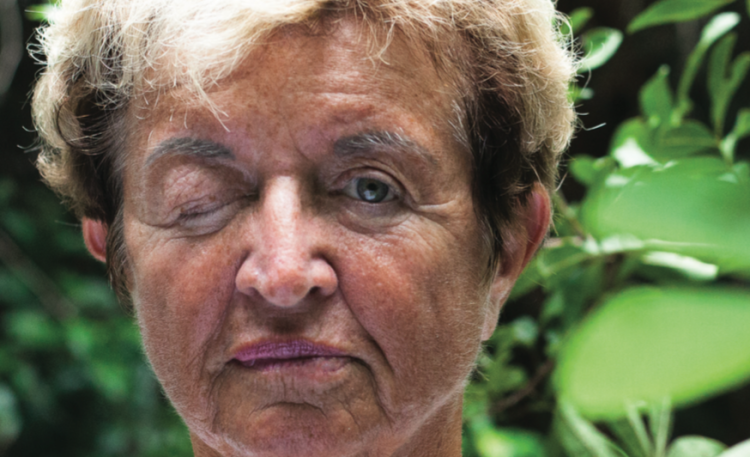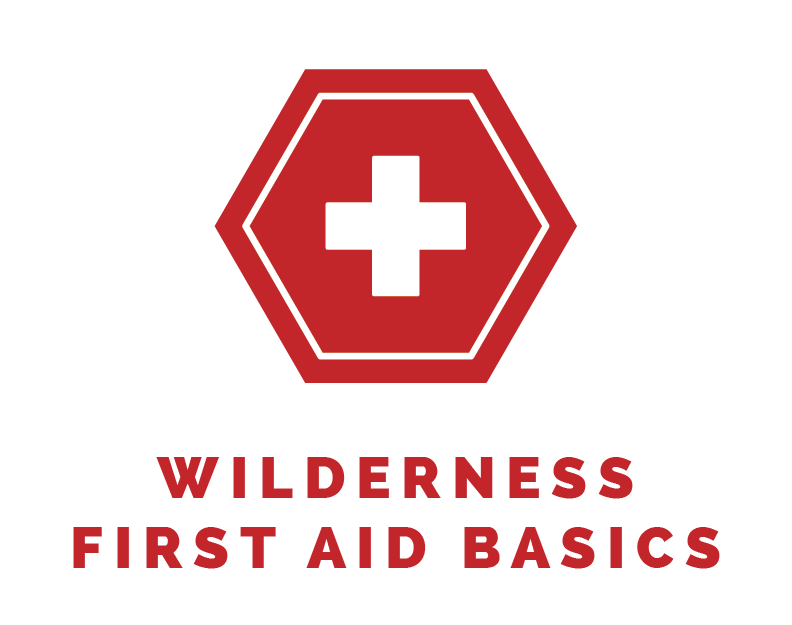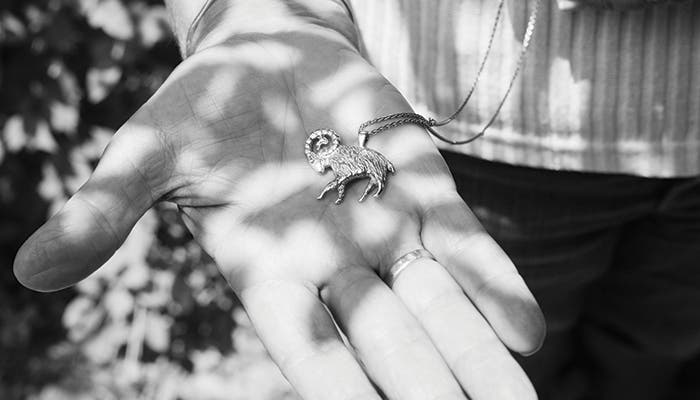Surviving a Grizzly Bear Attack

Upgrade your skills with our online Wilderness First Aid Basics class! Learn to conquer common problems and handle emergencies with grace. Start it instantly, complete it at your own pace, access it forever. Sign up now!


I had rented an old trailer up in Babb, Montana, just east of Glacier National Park, for the third year in a row. My brother has a summer fishing cabin just a quarter of a mile away. Every morning I’d take long walks around the pine-fringed lake with my two little Havanese dogs, Angus and Shamus. They were my best friends.
Maybe I should have known something was wrong when the bigger dog, Angus, didn’t want to go. He normally loved our walks. But I ignored it and forced him out anyway, thinking he’d change his mind on the way. I clipped my phone holster to my waist, and strapped my bear spray and police whistle to my belt.
The dirt road around the lake offered little shade, so at the top of a nearby hill with a clearing, I took off my jacket and tied it around my waist. The morning was eerily quiet; no birds were chirping. Still, I saw nothing, so I kept walking. I had made it 100 feet down the hill when I heard a snap.
The two cubs that bumbled out onto the road were the cutest things I’d ever seen. The full-sized momma grizzly bear lumbering behind them was not. She stopped when she saw me, not more than a telephone pole’s length away. She reared up onto her hind legs, must have been 8 feet tall. Her roar echoed throughout the valley as she dropped down to chase after me at a speed I didn’t think possible. “So this is how it ends,” I thought as I started to run.
My brother had warned me about what to do should I encounter a bear. You’re supposed to spray it from the ground up so that the mist gets up its nose, he’d said. If that doesn’t work, crouch over, make yourself as tiny as possible with your knees to your chest and head down. Play dead and hope it loses interest. When you’re actually running from a bear, I can assure you, all that goes right out the window.
I sprinted for the brush near where they’d come out and dove in. My tiny dogs were jumping 3 feet in the air to stop her. She struck at them, then came for me. I couldn’t reach my spray. I tried to take one last look at the beautiful, peaceful area I loved, but the bear blocked my view. I bent over, covering my face with my arms, cowering for my life, praying I could be quiet enough to make her magically disappear.
Her claws cut through my arm first, tearing it down away from my neck, the searing pain distracting me from what happened next. I thought she was scraping my scalp with her claws, but they tell me she bit my skull three times. My head was ducked down toward my body, my eyes shut tight against this nightmare. I didn’t look at her. “Never make eye contact with a bear,” my brother had told me. She pulled me out of the brush and raked her claws over my abdomen all the way up to my neck, trying to get at my organs. Before I blacked out, the only emotion I felt was anger. I was mad. Because I thought I was going to die, and I didn’t want to die.
They tell me she missed my carotid artery by the width of one hair. They tell me I lived because her cubs wandered off and she went to find them.
A dog’s bark brought me back to consciousness. Only one dog. I knew immediately that Angus was dead. My arm hurt, and I thought there might be something wrong with my head, but I just got up and unleashed my remaining dog. He took off toward home. It was 7:10 in the morning, and I thought, “This will be easy. I’ll just call for help.”
But my phone holster was empty. I’d put on the holster but forgotten the phone. I was alone.

As I struggled to walk, waves of nausea washed over me, and I kept getting dizzy. I wobbled and inched my way forward. I heard or felt this gloomp, whoomp, gloomp sound coming from my head. I didn’t know or care what it was. I had one mission. Get home, get help.
I was blowing my whistle, but I was running out of air. I was yelling for help, but it was so windy no one could hear me. I was going into shock. I had to sit down. No one was coming for me; I was alone.
I sat waiting, hoping against hope that someone would drive by. It took three and a half hours. At 11:40 a.m., a big truck rumbled by, driven by a schoolteacher taking some students on a fishing trip. I called out, “Do you think you could come over here and give me a hand?”
They stopped and scrambled toward me, rushing me into the truck and calling 911. In the middle of that, my sister-in-law came by, frantically asking them if they’d seen a dog. When she recognized me, she got in the truck with me and covered me with her shirt, then lay over me to keep me warm. We met the EMTs about 6 miles from where I was attacked, and the ambulance took me 40 minutes to Browning hospital. My eyes had swollen shut. It felt like paint was seeping down a wall, but the wall was my eyes and the paint was pain.
When they cut my clothes off, I felt like a piece of meat on a slab, exposed and raw. They gave me four pints of blood and immediately airlifted me to Kalispell Regional Medical Center. I went through seven and a half hours of surgery that first time, and had three subsequent operations in the coming days. They never actually told me what they were repairing, and I never asked.
Months later, at a wound check, they told me the bear had ripped all my muscles in the back of my neck. That she had ripped off one of my ears, and they had to sew it back on. The bear had smashed my jaw all the way back through my head, had crushed the bones under my eyelids.
I survived a fractured nose, several deep lacerations on the back of my neck, three bites to my head, and long, deep cuts through my torso. I lay in the hospital for three weeks, half in intensive care, the other half in rehab. The bones in my eyes required more than 24 tiny nails to piece them back together. I only regained sight in one eye; the other is permanently shut—the nerves in my right eyelid are crushed and non-responsive, meaning it will not open on its own.
I’m not upset about my injuries, just grateful to be alive. The alternative was death. The worst part about this entire adventure was the loss of my beloved dog Angus. My brother’s neighbor found him and buried him on my brother’s land for me, but I just cannot bring myself to go visit. It’s too painful. The bear broke up my family.
As soon as I got out of the hospital, I went back to my trailer. No bear is going to deter me from living the life I love. I’m not afraid and I don’t stay indoors. As soon as I was able, I was out hiking again—only I go with a partner and always keep the bear spray in my hand. I still go to the lake every year. Shamus comes with me, but he spends his walks now looking for his lost brother.
Key Skills: Survive a Grizzly Scare
1. Don’t panic. In a low voice, announce your presence and back away slowly. Don’t run: Flight will trigger a bear’s prey drive and they can sprint up to 30 mph. If the bear huffs or growls at you–his way of expressing aggression–speak louder and wave your arms.
2. Stand your ground. Most bear charges are bluffs. If you have bear spray (you should, and it should be within reach) and the bear is approaching within 20 yards, spray a low cloud that envelops the charging bruin. Get upwind of the bear if you can, but bear spray leaves the can at around 70 mph, so the spray remains effective at close range.
3. Get aggressive. If the bear approaches within 10 yards, aim slightly above his head to direct short bursts of spray into his eyes mouth, and nose. Now’s a good time for that war cry, too.
4. Play dead. Is he still coming? Time to convince him you’re not a threat. Put your hands behind your neck and lay belly down to protect vital organs and nerves. Remain still while waiting for the bear to leave the area–he may return if he notices renewed movement.
5. Avoid getting eaten. Most grizzly attacks are reactions to fear or attempts to protect young. But if the bear begins to feed, it’s time to fight. Gouge at the sensitive spots like his face, nose, and eyes. Get primal. This is the fight of your life.
–Corey Buhay